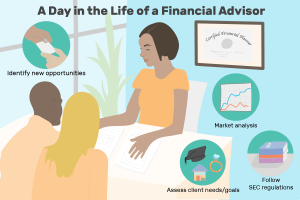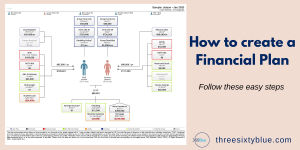How to Become a Financial Advisor

While becoming a financial advisor requires some training, you don’t need to be a CFP to succeed. This career requires networking and a willingness to market yourself. There are many ways to become a financial advisor, and some paths are more lucrative than others. However, before you start, there are several steps you must take first.
First, you should be comfortable with numbers. This is a fast-paced field, and you should have excellent communication skills. As a financial advisor, you’ll spend most of your time meeting clients and marketing your services. You’ll also need to have a thorough understanding of various financial products and a good understanding of general finance.
If you’re thinking of becoming a financial advisor, you’ll need to take stock of your current situation and identify your skills. If you have a natural gift for dealing with money, you might want to start working as a financial advisor. If you’re lacking these skills, however, you can always take a finance degree to enhance your skills.
After receiving the appropriate education and training, you’ll need to become licensed and start marketing to potential clients. As an advisor, you must keep your industry license up to date and attend continuing education seminars. Being a financial advisor is a demanding job and requires a lot of patience. You’ll need to market yourself, acquire clients, and keep yourself updated on industry news.
Once you’ve been licensed, you’ll need to find a job at a firm that will sponsor your license. Some firms will hire individuals with little or no experience in the financial industry and train them to become financial advisors. Others will look for people with strong sales skills. Whatever path you choose, be sure to take the time to interview current financial advisors.
If you are interested in working for a financial firm, it’s important to earn a bachelor’s degree in a relevant field. Finance majors should study business, accounting, or statistics. You should also consider getting an internship to gain experience. An internship will land you an entry-level position, and with hard work, you can progress to a higher level position.
You can become a financial advisor through online platforms or traditional methods. Online platforms can help you find a job that suits your unique circumstances. Traditional advisors often charge a percentage of the assets managed. Some will also require high minimum balances to work with you. However, if you’re looking for a more personalized relationship, a traditional financial advisor may be right for you.
As with any other career, earning a bachelor’s degree is essential. A bachelor’s degree in finance or economics will give you a competitive advantage in the job market. While it’s possible to work without a degree, the vast majority of financial advisors choose to pursue a degree. A bachelor’s degree in finance and economics is the most common choice, but accounting or real estate degrees can also be helpful. Additionally, a general business degree may suffice.






